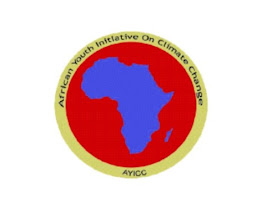Nine Principles of a Green Economy
A green, fair and inclusive economy provides a better
quality of life for all within the ecological limits of the planet:
1. The Sustainable Principle. A green, fair and
inclusive economy is a means to deliver sustainability
It is one of the vehicles to deliver sustainable development
– not a replacement for it.It respects its dependency on a healthy environment
and it strives to create wellbeing for all It addresses all three
dimensions (environmental, social and economic) and develops policy mixes that
integrate and seek the best results across all of them.
2. The Justice Principle. A green, fair and inclusive
economy supports equity
It supports equity between and within countries and
between generations. It respects human rights and cultural diversity
It promotes gender equality and recognises knowledge, skills,
experience and contribution of each individual
It respects indigenous peoples rights to lands, territories
and resources
3. The Dignity Principle. A green, fair and inclusive
economy creates genuine prosperity and wellbeing for all
It alleviates poverty
It delivers a high level of human development in all
countries
It provides food security and universal access to basic
health, education, sanitation, water, energy and other essential services
It transforms traditional jobs by building capacity and skills,
respects the rights of workers and actively develops new, decent green jobs and
careers
It achieves a just transition.
It acknowledges the contribution of unpaid work
It promotes the self-empowerment and education of women
It support the right to development if delivered in a
sustainable way
4. Healthy Planet Principle. A green, fair and inclusive
economy restores lost biodiversity, invests in natural systems and
rehabilitates those that are degraded
It recognizes its dependency on the productivity of
ecosystems and biodiversity
It does not violate, disrupt, or overstep ecological
boundaries and commits to co-operate within them, including reducing pollution,
safeguarding ecosystems, biodiversity integrity, other natural resources
including air, water, soil, and bio-geochemical cycles
It ensures that environmental integrity is maintained before
allocating resources among competing uses
It ensures an efficient and wise use of natural resources,
including water, natural gas, oil and mineral resources, without compromising
future generations prospects
It supports the respect of all forms of life
It applies the precautionary principle
It assesses of the potential impact of new technologies and
innovations before they are released
It assesses the environmental impacts of economic policies
and seeks to find the least disruptive, most positive benefit for the
environment and people
It promotes the restoration of balance between ecological
and social relations
5. The Inclusion Principle. A green, fair and
inclusive economy is inclusive and participatory in decision-making
It is based on transparency, sound science and the visible
engagement of all relevant stakeholders
It supports good governance at all levels from local to
global
It empowers citizens and promotes full and effective voluntary
participation at all levels
It respects cultural values, is tolerant to religious views
and lifestyle choices, and sensitive to ethical considerations
It build societal awareness, developing education and
skills\
It is transparent, inclusive and participatory, giving equal
opportunities to, and advocating further for the rights of, young and old,
women and men, poor and low skilled workers, indigenous peoples, ethnic
minorities and local communities
6. The Good Governance and Accountability Principle. A
green, fair and inclusive economy is accountable
It provides a framework to structure markets and production
in consultation with all stakeholders
It reports its sustainable progress on environmental, social
and economic measures, in company, national and international accounts.
It achieves transparency
It promotes international cooperation and defines
international liability
It promotes global policy coherence and fair international
cooperation
It promotes common but differentiated responsibilities
It commits to international human rights standards and
environmental agreements
7. The Resilience Principle. A green, fair and
inclusive economy contributes to economic, social and environmental resilience
It supports the development of social and environmental
protection systems, and preparedness against and adaptation for climate extreme
events and disasters
It creates a universal social protection floor.
It promotes a variety of green economy models relevant to
different cultural, social and environmental contexts
It considers indigenous local knowledge and promotes the
sharing of diverse knowledge systems
It builds on local skills and capacities and develops these
further
It supports sustainable, diverse economies and local
livelihoods
It promotes systems approaches, recognising the
interdependence and integrated nature of these systems, underpinned by culture
and ethical values
8. The Efficiency and Sufficiency Principle. A green,
fair and inclusive economy delivers sustainable consumption and production
It seeks to ensure prices reflect true costs incorporating
social and environmental externalities
It implements the polluter pays principle
It supports life-cycle management, and strives for zero
emission, zero waste, resource efficiency and optimal water use
It prioritises renewable energy and renewable
resources
It seeks absolute decoupling of production and consumption
from negative social and environmental impact
It delivers sustainable lifestyles supporting a major
cultural transformation
It promotes social, economic and environmental
innovation
It gives fair rights to access intellectual property within
a global legal framework
9. The Generations Principle. A green, fair and
inclusive economy invests for the present and the future
It delivers inter-generational and intra-generational
fairness
It promotes conservation of resources and the quality of
life over the long term
It influences and regulates the finance sector so that it
invests in the green, fair and inclusive economy and achieves a stable
global monetary system
It prioritises long-term, scientifically-sound decision
making above the short-term
It promotes equitable education at all levels and
sustainability education for children

Understanding the nine principles of a green economy is crucial for promoting sustainable development and reducing environmental impact. Implementing these principles can guide businesses and governments toward eco-friendly practices while fostering economic growth. For students studying these concepts, econometrics assignment help provides expert assistance in analyzing economic data and applying statistical methods to real-world sustainability issues. Leveraging such support can improve comprehension, ensure accurate assignment submissions, and help students excel in their economics coursework.
ReplyDelete